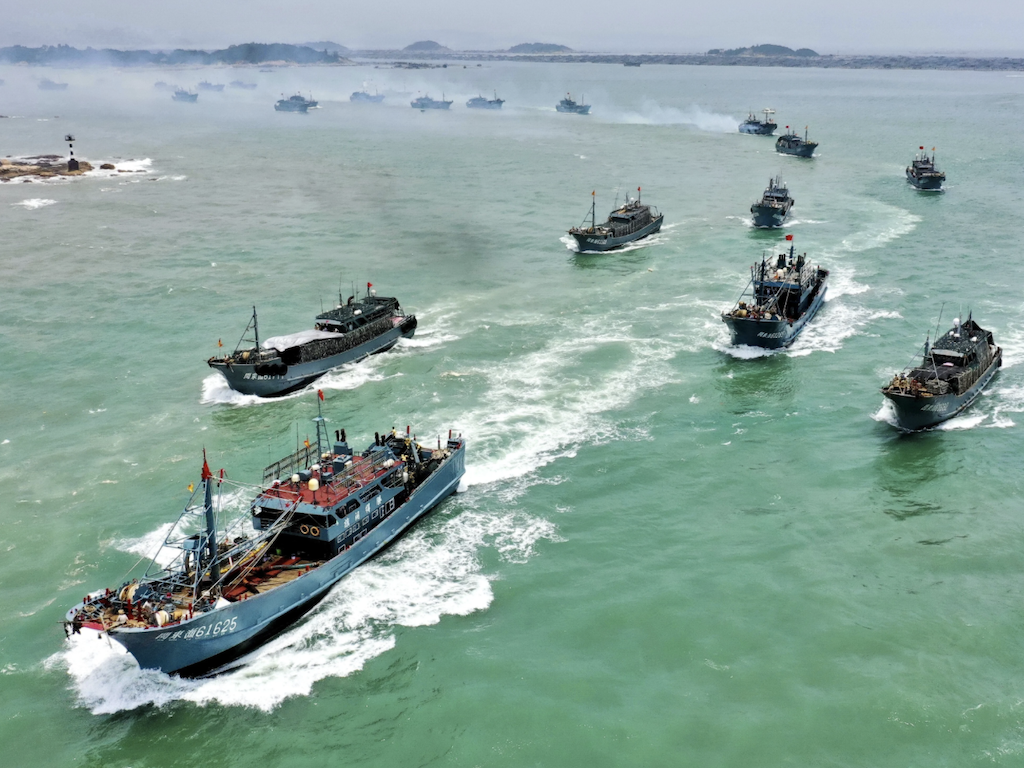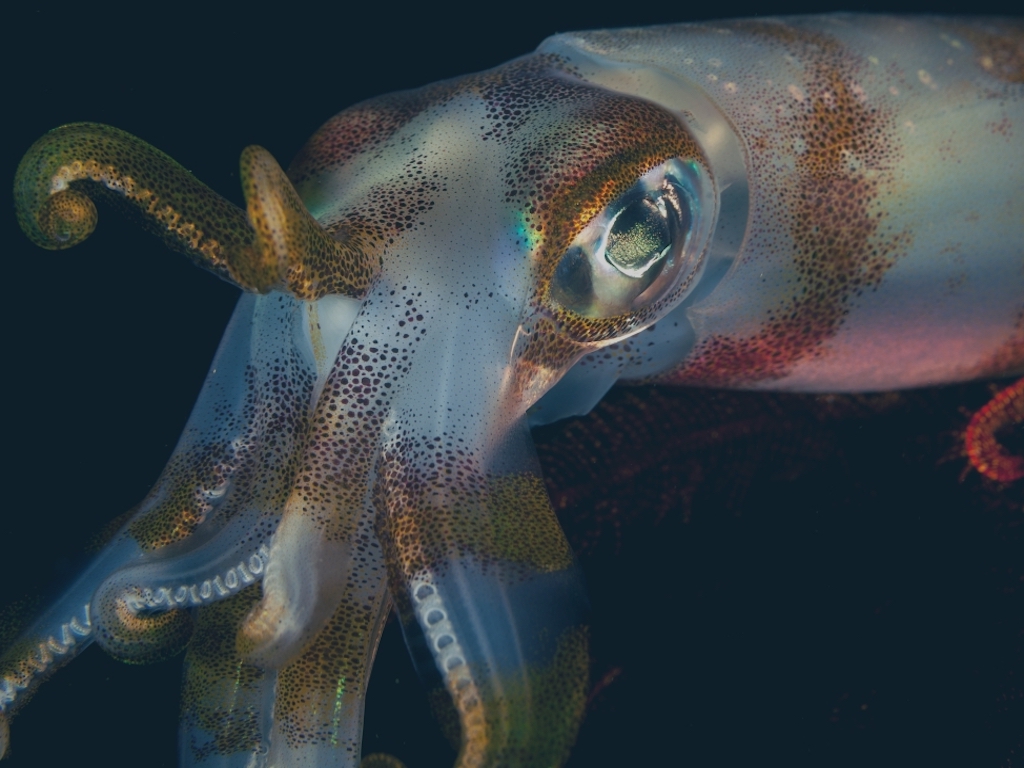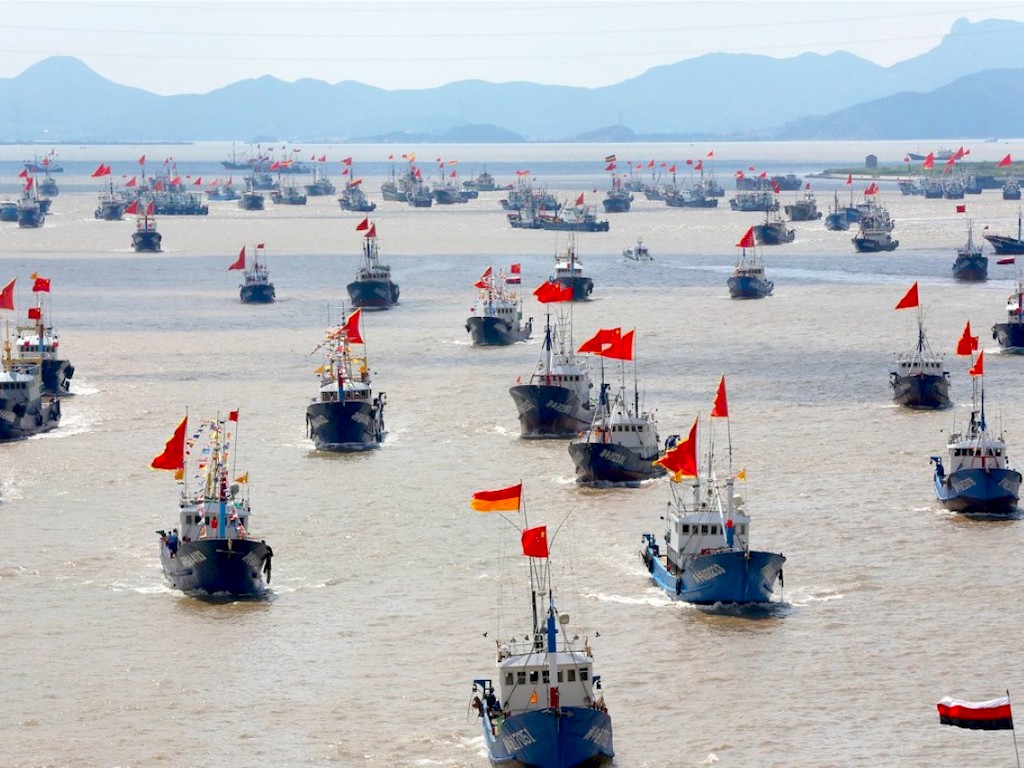4 Mins Read
China has revised sustainability rules governing its distant-water fishing fleet, which has often made headlines for its illegal activities. While the new rules will mean tougher penalties for fishing companies and captains that break the law, experts are cautious about the potential impact it could have without proper enforcement mechanisms.
For the first time in 17 years, China is changing its regulations governing its more than 2,900 distant-water fishing vessels. These new rules, which will begin taking effect over the course of this year, will mean harsher penalties for those who are caught breaking the rules, increased monitoring of vessels, a ban on pollution during transshipment operations, new port management procedures and firmer requirements for certification.
As reported by Mongabay, the revised policy has changed the focus of fishing from “rational” to the “sustainable” use of marine resources in the first paragraph of the Distant-Water Fishing Management Regulations. According to a translation provided to the publication by Tabitha Mallory, the founder of China Ocean Institute, references to protection and sustainability have doubled in the newly revised version.
Other major changes include tougher punishments for companies and captains flouting the rules, who will now face potential years-long suspension of their duties on top of monetary fines. Some experts say this will help incentivise insurers, creditors and other fishing industry support businesses to work with companies operating high-risk fishing vessels.

The new monitoring of the high-seas transhipment, which will introduce reporting and onboard observers and a ban on pollution, as well as the Management Measures for High Seas Squid Fishery, which bans squid fishing in certain seasons of the year, marks the first-time such issues have at all been regulated by the Chinese authorities.
Some conservationists are hopeful that the new policies will lead to much-needed changes in the right direction, especially given China’s massive distant-water fishing operations that are responsible for an estimated 15% of the world’s reported wild fish catch. The real figure, experts say, is likely to be higher given the discrepancies in officially reported catches.
“China is the country that will shape what the future of ocean health becomes,” Douglas McCauley, professor of marine biology at the University of California, told Mongabay. “No other nation has more say as to what will become of the future of our ocean.”
However, many environmentalists and industry watchers remain cautious over the potential impact that these new rules will have. China’s distant-water fishing fleet has been involved in a number of high-profile illegal fishing cases, and has been consistently ranked the worst out of 152 coastal states on the global illegal, unreported and unregulated fishing (IUU) index.

In February 2019, almost 300 fishing boats were spotted during the peak squid season in the southwest of the Atlantic Ocean. The majority of them had turned their vessel monitoring system off – a move that is not always illegal, but widely perceived as a cover for fishing illegally within protected areas or during seasonal fishing bans. According to a report by nonprofit C4ADS, more than 87% of the vessels were flagged to China.
More recently, Chinese fleets made headlines with its vast armada present near the biodiverse Pacific islands of Galápagos, which raised alarm bells over the fishing practices that conservationists say could severely damage the region’s protected marine ecosystem.
While many news reports had suggested that Chinese fleets were in the area in search for sharks, Hong Kong-based ocean conservation group OceansAsia emphasised that at the core of China’s distant-water fishing operations is the demand for seafood, particularly squid.
According to a report by the Overseas Development Institute, China’s fishing ships have been targeting the territorial waters of low-income countries after having depleted fish stocks in its domestic waters.
Commenting to Mongabay about the impact of the new laws, Pan Wenjing of Greenpeace East Asia said: “These strong measures make the regulation a tiger with sharp teeth. But it still depends on whether it can be effectively enforced.”
Lead image courtesy of China News Service.




